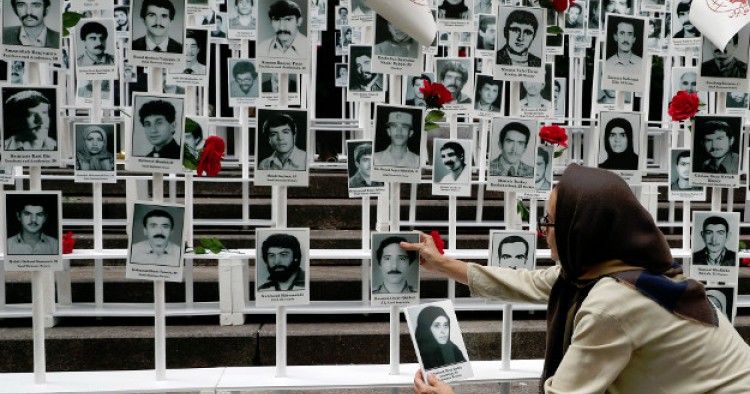Mehdi Rajabian, an Iranian musician serving a three-year jail term at Tehran’s Evin prison, is being treated for internal bleeding at a hospital. But the country’s judiciary has demanded that he return to prison, disregarding his serious medical condition.
A Revolutionary Court in 2015 found Rajabian, his filmmaker brother Hossein Rajabian, and their musician friend Yousel Emadi guilty of “insulting Islamic sanctities” and “illegal audio-visual activities.”
The artists’ imprisonment on spurious charges and their mistreatment have drawn condemnations from both activists in Iran and international human rights organizations.
Amnesty International called the trial “grossly unfair” as it reportedly lasted a few minutes and the brothers were denied the right to lawyers during the interrogation and trial periods.
In an open letter earlier this year, 165 Iranian artists and activists condemned the increasing acts of repression against artists by the authorities – particularly harsh jail terms for the Rajabian brothers and Emadi. They claimed that artists were “subjected to harsher days than in the past” because of “detentions and heavy sentences and restrictions on their activity.” The letter added that the authorities tortured many artists and forced them to make confessions on television. “We see heavier punishments for artists than for criminals,” they complained.
But such condemnations and pleas for fair trial fall on deaf ears as the authorities continue to silence voices of critics, including artists whose works the regime sees as threatening to its principles and survival.
On another instance, Kaleme – an Iranian news site affiliated with Mir Hossein Mousavi, an opposition leader under house arrest since Iran’s controversial 2009 elections – reported on November 23 that Keyvan Karimi, an Iranian Kurdish documentary filmmaker, was imprisoned in Evin. Karimi was sentenced to a six-year jail term and 223 lashes in 2015 on vague charges of “insulting the sacred” for his film titled “Neveshtan Rooy-e Shahr (Writing on the City)” which included some scenes from protests after the 2009 election.
The Middle East Institute (MEI) is an independent, non-partisan, non-for-profit, educational organization. It does not engage in advocacy and its scholars’ opinions are their own. MEI welcomes financial donations, but retains sole editorial control over its work and its publications reflect only the authors’ views. For a listing of MEI donors, please click here.













